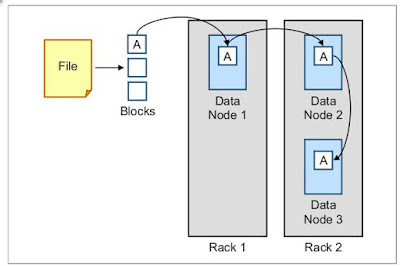Challenges, Trends, and the Future of Big Data
Introduction
Big data has transformed industries, economies, and societies, enabling unprecedented insights and efficiencies. However, as we stand at the crossroads of technological evolution, the future of big data is shaped by emerging challenges, innovative trends, and transformative technologies. This chapter explores the hurdles and opportunities that lie ahead, focusing on edge computing, quantum computing, sustainability, AI ethics, and predictions for the next decade. By examining these areas, we aim to inspire and prepare readers for a dynamic and responsible big data ecosystem.
Emerging Challenges in Big Data
Data Volume and Velocity Overload
The exponential growth of data—projected to reach 180 zettabytes by 2025—strains storage, processing, and analytical systems. Real-time applications, such as autonomous vehicles and IoT devices, demand low-latency processing, pushing traditional cloud architectures to their limits. Centralized systems struggle to handle the velocity and variety of data, leading to bottlenecks and inefficiencies.
Privacy and Security Concerns
As data collection intensifies, privacy regulations like GDPR and CCPA impose stringent requirements. High-profile breaches highlight vulnerabilities in data storage and transmission. Ensuring robust encryption, anonymization, and compliance without sacrificing utility remains a critical challenge.
Talent and Skill Gaps
The demand for data scientists, engineers, and AI specialists outpaces supply. Organizations struggle to recruit and retain talent capable of navigating complex big data environments, particularly in emerging fields like quantum computing and AI ethics.
Ethical Dilemmas
The use of big data in decision-making raises ethical questions. Biased algorithms, lack of transparency, and inequitable access to data-driven insights threaten societal trust. Addressing these issues requires frameworks that prioritize fairness and accountability.
Key Trends Shaping Big Data
Edge Computing: Decentralizing Data Processing
Edge computing is revolutionizing big data by processing data closer to its source, reducing latency and bandwidth demands. IoT devices, smart cities, and industrial automation rely on edge nodes to analyze data in real time. For example, autonomous vehicles process sensor data locally to make split-second decisions, minimizing reliance on distant cloud servers.
This shift enhances scalability but introduces challenges like edge device security and data consistency. By 2030, over 50% of enterprise data is expected to be processed at the edge, necessitating robust frameworks for distributed computing.
Quantum Computing: Redefining Computational Power
Quantum computing promises to transform big data analytics by solving complex problems intractable for classical computers. Quantum algorithms, such as Grover’s and Shor’s, could optimize search and encryption tasks, enabling faster processing of massive datasets. For instance, quantum machine learning could accelerate pattern recognition in genomic data.
However, quantum computing is in its infancy, with practical applications still years away. Challenges include error correction, scalability, and integration with existing big data infrastructures. By the mid-2030s, quantum systems may begin to complement classical computing in hybrid models.
Sustainability: Greening the Data Ecosystem
Data centers, the backbone of big data, consume vast amounts of energy—approximately 1% of global electricity. As data volumes grow, so does the environmental footprint. Innovations like liquid cooling, renewable energy-powered data centers, and AI-optimized resource allocation are addressing these concerns. For example, Google’s DeepMind reduced data center cooling costs by 40% using AI.
Sustainability efforts also extend to hardware lifecycles and e-waste reduction. By 2035, green data centers could account for 30% of global facilities, driven by regulatory pressures and corporate responsibility.
AI Ethics: Building Trust in Data-Driven Systems
AI, a cornerstone of big data, faces scrutiny over bias, transparency, and accountability. Ethical AI frameworks are emerging to address issues like discriminatory algorithms in hiring or policing. Explainable AI (XAI) models, which provide interpretable outputs, are gaining traction to enhance trust.
Regulatory bodies are developing standards, such as the EU’s AI Act, to enforce ethical guidelines. By 2030, ethical AI could become a prerequisite for big data applications, requiring organizations to prioritize fairness and inclusivity.
Predictions for the Next Decade
Hyper-Personalization and Predictive Analytics
Big data will drive hyper-personalized experiences in healthcare, retail, and entertainment. Predictive models will leverage real-time data to anticipate consumer needs, such as personalized medicine tailored to genetic profiles. By 2035, 80% of consumer interactions may involve AI-driven personalization.
Decentralized Data Ecosystems
Blockchain and federated learning will enable decentralized data sharing, enhancing privacy and security. Organizations will collaborate on shared datasets without compromising proprietary information, fostering innovation in fields like finance and healthcare.
Integration of Quantum and Classical Systems
Hybrid quantum-classical systems will emerge, combining quantum’s computational power with classical reliability. This synergy will accelerate big data applications in cryptography, logistics, and drug discovery.
Autonomous Data Management
AI-driven data management platforms will automate data cleaning, integration, and governance. By 2035, 60% of enterprises may adopt autonomous systems, reducing operational costs and human error.
Ethical and Sustainable Data Practices
Regulatory frameworks will mandate sustainable and ethical data practices. Carbon-neutral data centers and bias-free algorithms will become industry standards, driven by consumer demand and policy incentives.
Conclusion
The future of big data is a tapestry of innovation and responsibility. Edge computing will decentralize processing, quantum computing will unlock new analytical frontiers, sustainability will redefine infrastructure, and ethical AI will ensure trust and fairness. Over the next decade, these trends will converge to create a resilient, inclusive, and sustainable data ecosystem. By embracing these advancements and addressing their challenges, organizations and individuals can harness big data’s full potential to shape a better future.




Comments
Post a Comment